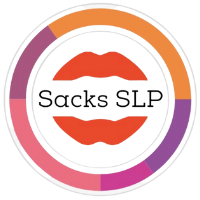
Some children have swallowing problems, or dysphagia (dis-FAY-juh). Swallowing happens in three stages, or phases. A child can have a problem in one or more of these phases. They include:
- Oral phase – sucking, chewing, and moving food or liquid into the throat. Feeding is a part of the oral phase.
- Pharyngeal phase – starting the swallow and squeezing food down the throat. The child needs to close off his airway to keep food or liquid out. Food going into the airway can cause coughing and choking.
- Esophageal phase – opening and closing the esophagus, or the tube that goes from the mouth to the stomach. The esophagus squeezes food down to the stomach. Food can get stuck in the esophagus. Or, a child may throw up a lot if there is a problem with the esophagus.
How to determine if your child is a Picky Eaters vs. Problem Feeder?
- If you were to make a list of all of the foods that your child eats, how many foods would be on that list?
- Does your child eat the same food over and over, then suddenly stop eating that food? Will they accept that food again at some point in the future, or is that food typically lost?
- What happens if you put a new food on their plate?
- Do they eat at least one food from most nutrition (proteins, vegetables, etc.) and texture (purees, soft foods, chewy foods, etc.) categories?
- What does their plate look like at meals compared to the rest of the family’s?
- How hard is it for them to learn about new foods?
- How often has your child been reported as a “picky eater” at well-child check-ups?
Signs of Feeding and Swallowing Disorders
Your child may have a feeding or swallowing disorder if he/she:
- Arches her back or stiffens when feeding
- Cries or fusses when feeding
- Falls asleep when feeding
- Has/had problems breastfeeding
- Has trouble breathing while eating and drinking
- Refuses to eat or drink
- Eats only certain textures, such as soft food or crunchy food
- Takes a long time to eat
- Has problems chewing
- Coughs or gags during meals
- Drools or has liquid come out her mouth or nose
- Gets stuffy during meals
- Has a gurgly, hoarse, or breathy voice during or after meals
- Spits up or throws up a lot
- Is not gaining weight or growing
Causes of Feeding and Swallowing Disorders
There are many possible causes for feeding and swallowing problems, including:
- Nervous system
- disorders, like cerebral palsy or meningitis
- Reflux or other stomach problems
- Being born premature or having a low birth weight
- Cleft lip or palate
- Breathing problems such as asthma
- Autism
- Head and neck problems
- Muscle weakness in the face and neck
- Medicines that make her sleepy or not hungry
- Sensory issues
- Behavior problems
Your child may need feeding or swallowing intervention to do assist in one or more of the following:
- making the muscles of the mouth stronger
- helping to move the tongue (lateralize, elevate)
- helping to improve chewing patterns
- increasing the number of foods in the diet
- improving drinking from a cup
- varying food textures and liquid thickness
- helping with oral sensory issues. Your child may not like the way food feels in his mouth or on his hands.
